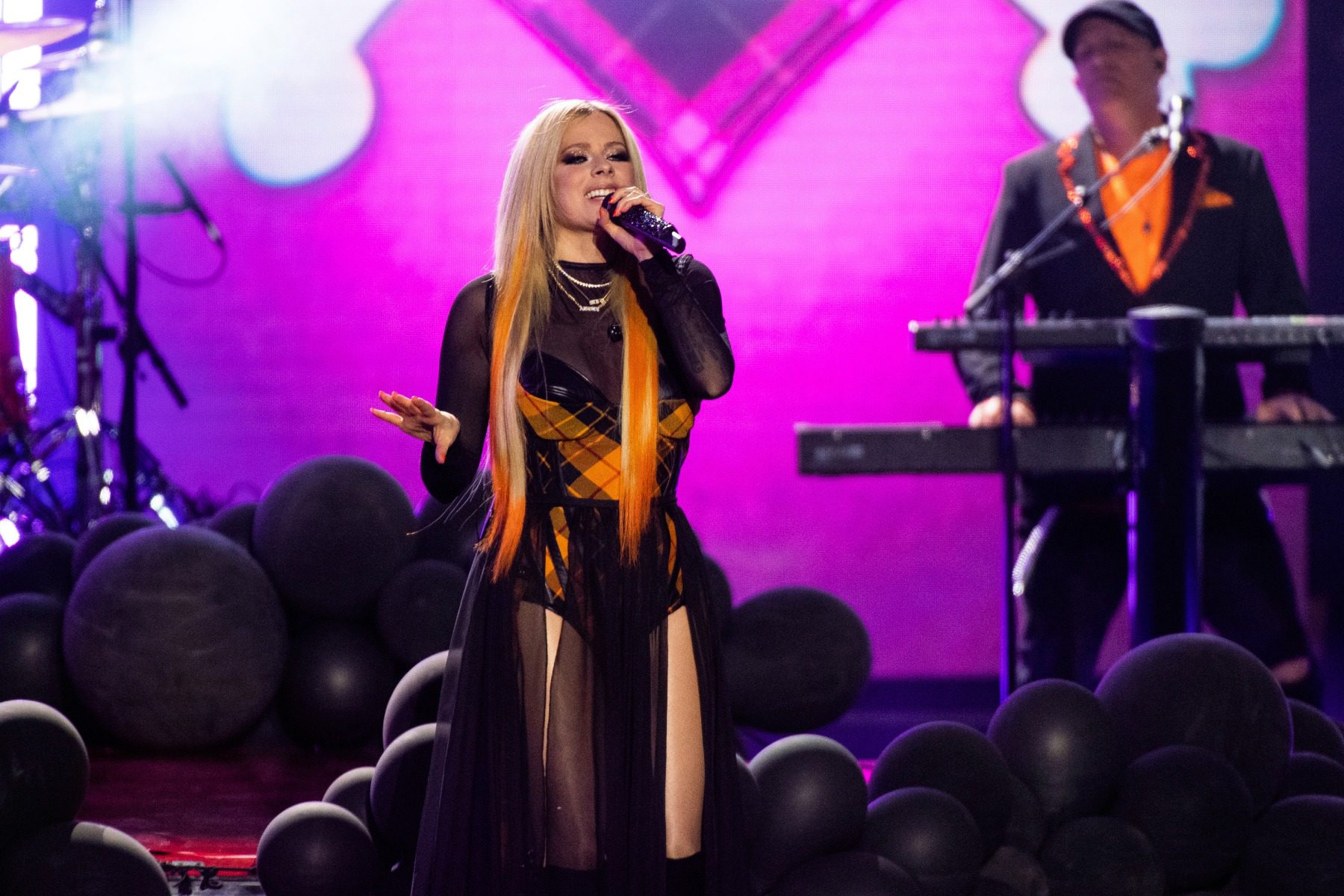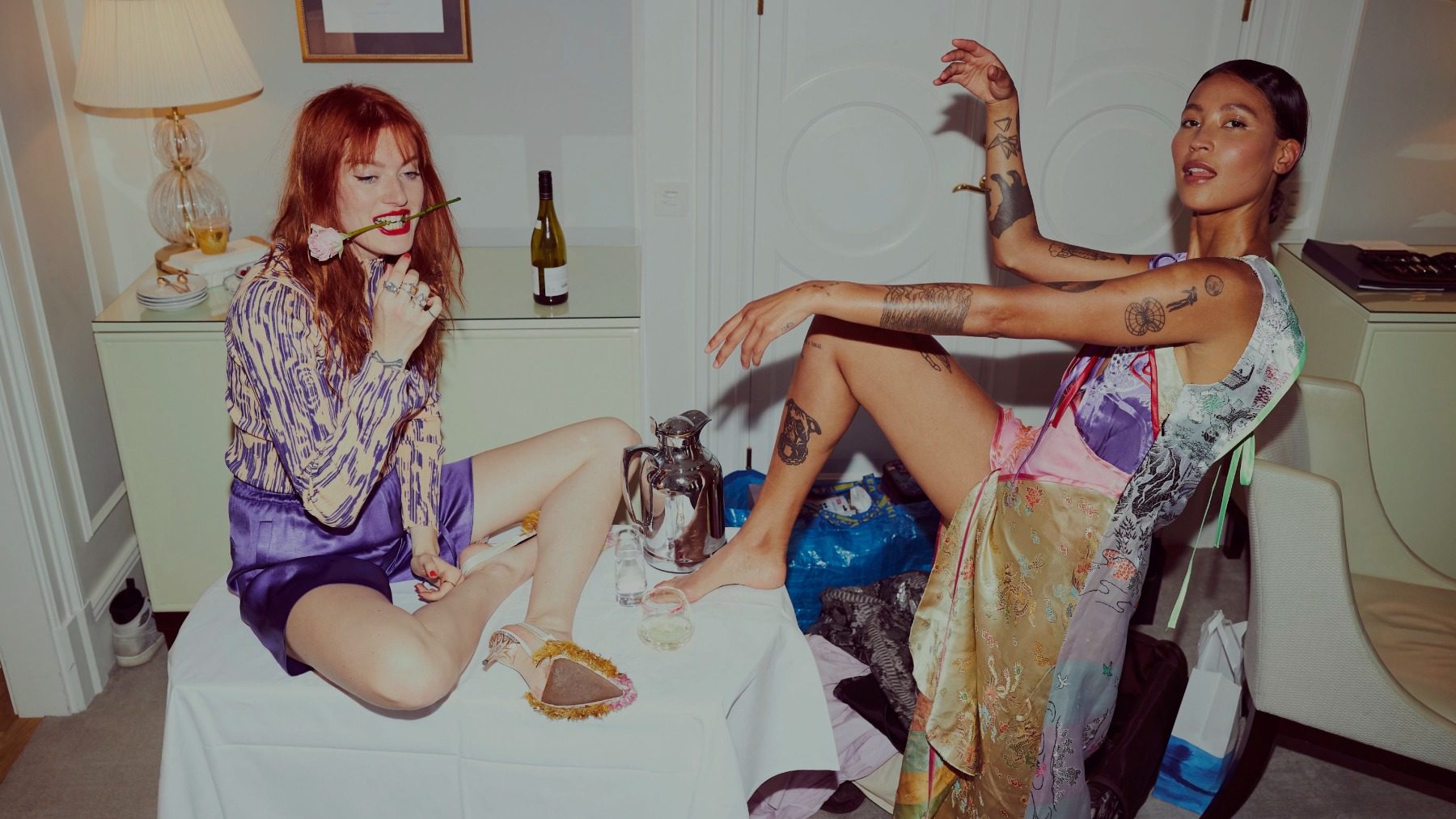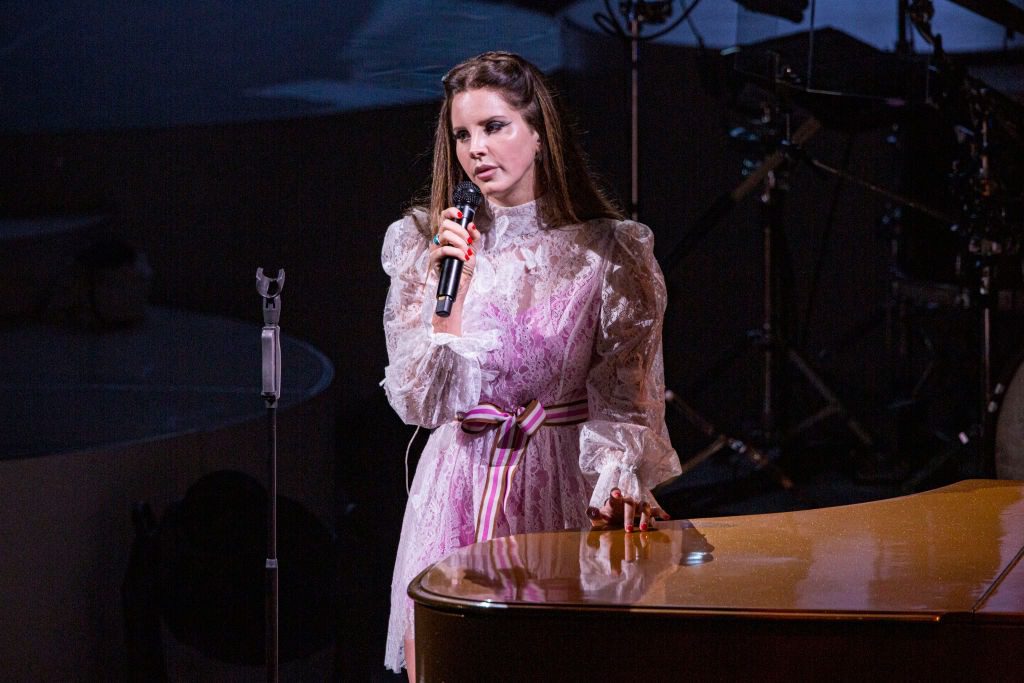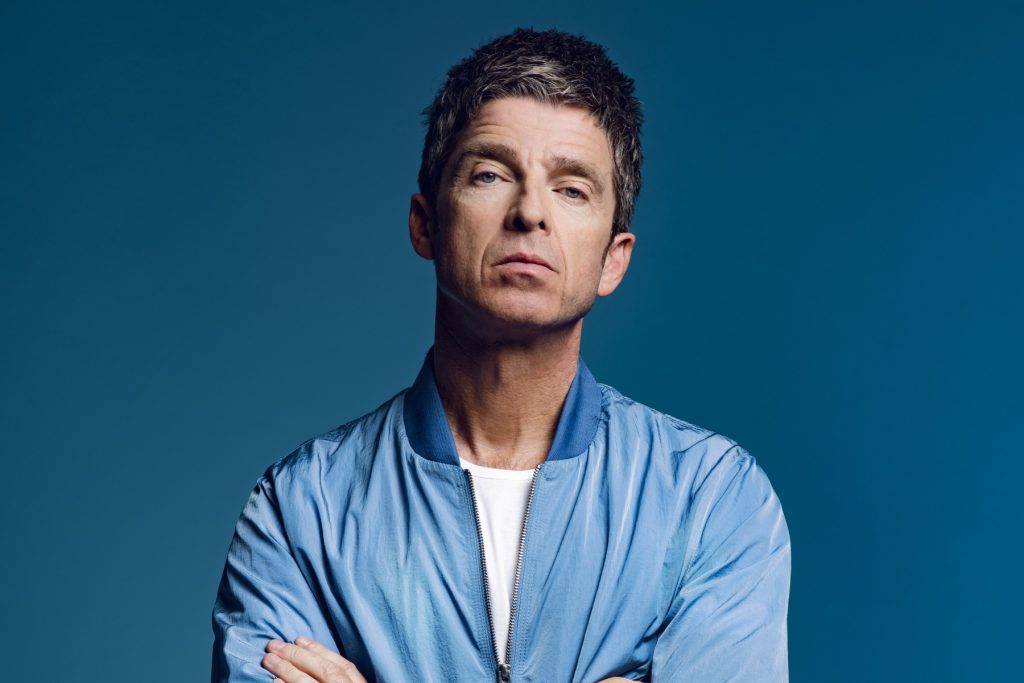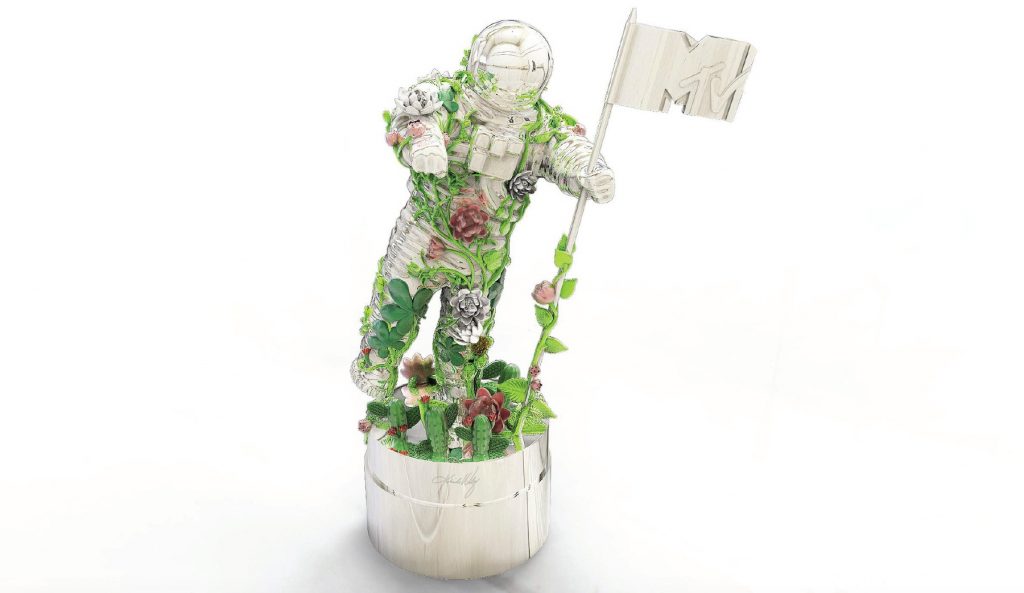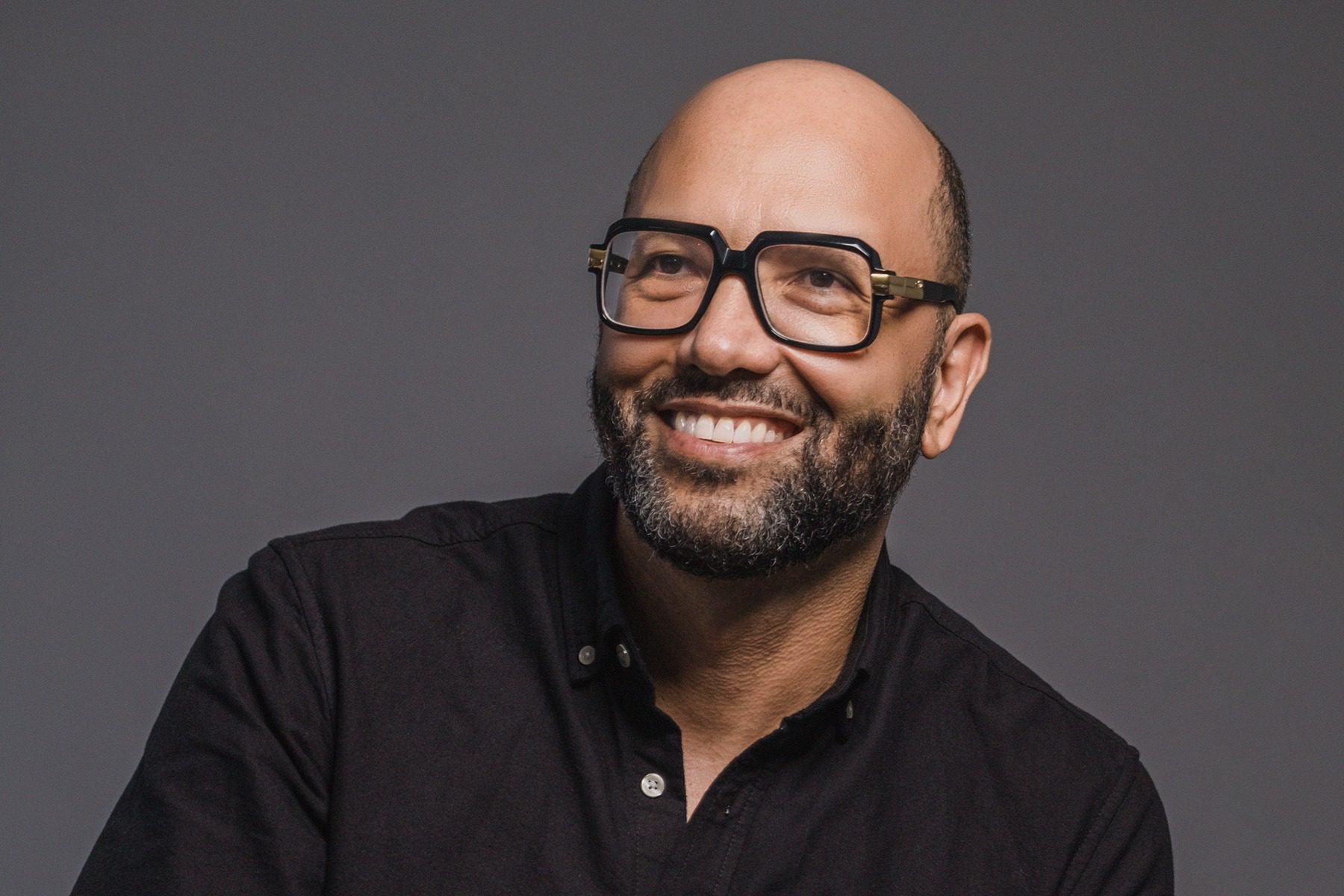
Nabil Ayers Looks Back on His First Sit-Down With His Jazz-Legend Father
If you’ve spent any amount of time in or around the worlds of indie rock or outside-the-box jazz in the past decade or so, chances are you’re familiar with the name Nabil Ayers. You might have come across his sturdy, hard-hitting drumming in Seattle bands like the Long Winters and the Lemons. Or you might know him as former proprietor of beloved shop Sonic Boom Records, or longtime general manager of the 4AD label (he’s now the U.S. president of their parent company Beggars Group). Or you might have heard one of the revelatory jazz releases on his boutique label Valley of Search. But what you might not know is that Ayers is the son of jazz vibraphone legend Roy Ayers — and that the story of his relationship with his father is especially complicated.
Nabil Ayers takes on all of the above and more in his affecting new memoir “My Life in the Sunshine: Searching for My Father and Discovering My Family” — the title of which riffs on Roy Ayers’ 1976 hit “Everybody Loves the Sunshine” — out June 7 via Penguin Random House. In this abridged excerpt from the book, Ayers looks back at his very first extended meeting with his father, which took place when he was in his mid-thirties. Because of an arrangement between Roy Ayers and his mother before his birth — they’d mutually agreed that she would have his baby with no involvement or obligation from him — Nabil had never previously gotten to know him beyond a few brief meetings.
blogherads.adq.push(function () {
blogherads
.defineSlot( ‘medrec’, ‘gpt-dsk-tab-article-inbody1-uid0’ )
.setTargeting( ‘pos’, [“mid-article”,”mid”,”in-article1″,”mid-article1″] )
.setSubAdUnitPath(“music//article//inbody1”)
.addSize([[300,250],[620,350],[2,2],[3,3],[2,4],[4,2],[640,250]])
;
});
Every year or two, I noticed Roy Ayers in the listings for the Seattle venue Jazz Alley. I’d never considered going to one of my father’s concerts — not even as an anonymous, ticket-buying fan. I never thought about seeing who he was and what he’d become, or checking if I could still feel his magnetism from the back row. He was nobody to me — as generic as the other artists listed who I’d heard of but with whom I had no connection.
When I was thirty-four, I started seeing a therapist for the first time. My therapist, of course, wanted me to open up about my father, sensing an obvious gap in which to root around. In those sessions I tried to be open, claiming the same arguments I always have: I’ve known my mother and father’s arrangement for my entire life. He never left us. My uncle is my father figure. How can someone who’s never been there be missing?
Not long into these therapy sessions, a Sonic Boom employee brought up my father. I remember exactly where I was standing — at the front counter of the store — and where she was standing — above the C section, stapling up a poster.
“I saw that your father’s coming to the Triple Door,” she said casually, punctuated by a staple gun slamming a staple into the wall.
I was immediately shaken by the nonchalant way in which she mentioned my father. Doesn’t she know my story? I wondered, as I decided how to respond. I’d always brushed off the idea of my father when someone brought him up, making sure they knew he wasn’t a big deal to me. Yeah, he’s my father. Nah, we don’t know each other. Nothing bad happened, that was just the arrangement with my mom. But that day, for some reason, it hit hard.
“Oh, really?” I tried to appear occupied, unfazed, cavalier. Usually when I heard this news, I’d never felt an urge to find out where or when my father was playing. I’d never checked the date to see if I’d be in town or not. He’d pass through and I’d hear about him coming again in another year or two.
But this time, for the first time, I felt a pull. It was a new, unfamiliar feeling — as if someone had told me, “There’s a set of beautiful, vintage drums sitting outside with a free sign on them. But you can only have them if you act really cool. Don’t let on to anyone how badly you want them. Oh, and each drum is stuffed with hundred‑dollar bills.”
blogherads.adq.push(function () {
blogherads
.defineSlot( ‘medrec’, ‘gpt-dsk-tab-article-inbody2-uid1’ )
.setTargeting( ‘pos’, [“mid-article2″,”mid”,”in-article2″,”mid-article”] )
.setSubAdUnitPath(“music//article//inbody2”)
.addSize([[300,250],[300,251],[620,350],[2,4],[4,2],[3,3],[2,2]])
.setLazyLoadMultiplier(2)
;
});
“When is he playing?” I asked calmly. “September 6.”
My mind raced as I pretended to read some papers. “I have to run upstairs for a minute, can you watch the floor?” I walked at a normal pace, trying desperately not to show my rush for the money‑stuffed drums, diligently walking up the stairs to the office. There, I quickly confirmed that on September 6, 2006, I’d be in town.
The easy path would have been to ignore it, as I had for so many years. There was no risk in not seeing my father. I could make plans to travel to Portland, LA, or New York on that date and tell anyone who asked that I’d be out of town. But now, this new pull existed. For the first time in my life, I wanted to contact my father.
I didn’t know what I wanted from him. I knew he’d never be my father. It was too late for that, and I’d already grown up
around excellent male role models. I didn’t need or want money from him. But it felt okay to not have a specific goal in mind. My mother always encouraged me to network — to go on informational interviews and meet with people, even if I wasn’t after something specific. So, with my therapist’s encouragement and no goal in mind, I set out to schedule an informational interview with my own father, whom I hadn’t seen in over two decades, since I was eleven years old.

Nabil Ayers
My mother was the first person I spoke to about the potential meeting. Unlike me, she kept tabs on my father. She didn’t stay in touch, but I knew that she’d seen Roy at least once recently when he performed in Berkeley. She showed up with my band’s most recent CD to say hello and update him on how her son was doing, and she reported back that he was friendly but brief, as he had been each of the several times I’d met him.
My mother’s tone surprised me. She didn’t know how to reach my father and became quite protective, warning me about the quest on which I was about to embark. “Be careful! Even if you do get a hold of him, he’s so unreliable. Even if you make plans with him . . . he won’t come. Are you sure you want to do this?”
The only contact I could find online was for my father’s booking agent. I didn’t want to overwhelm him by saying, “He’s my father,” and I also thought that I might not be the first person in his life to send such an email. So I typed what I felt was a very simple email that my father would understand if he saw it:
blogherads.adq.push(function () {
blogherads
.defineSlot( ‘medrec’, ‘gpt-dsk-tab-inbodyX-uid2’ )
.setTargeting( ‘pos’, [“mid”,”mid-articleX”,”in-articleX”,”mid-article”] )
.setSubAdUnitPath(“music//article//inbodyX”)
.addSize([[300,250],[300,251],[3,3],[620,350],[2,2]])
.setLazyLoadMultiplier(2)
;
});
“Hi. This is Nabil. My mother Louise knows Roy from the Seventies in New York City. I live in Seattle and I see that Roy is coming to play here in September. I’d like to meet up with him at some point. Could you please put him in touch with me? Thank you.”
The moment I pressed send, thirty‑four years of not caring about my father came to a close. For the first time, I’d put myself out there. I felt a physical wave of urgency. My throat and chest went dark, my mouth dry. I’d opened a door, and now it was no longer up to me. It was up to my father.
For the next two days I thought about it constantly. I was distracted at work. It was the only topic I discussed with my close friends. After not receiving a reply in two days, I knew I couldn’t sit still for another twenty‑eight. I went from writing a cool and collected email to one that sounded far more desperate—even threatening. This time I divulged that Roy was my father and that I was coming to the show whether I heard from him or not. And that we’d both be a lot more comfortable at the show if I did hear from him.
Fifteen minutes later I received a reply from the agent saying he’d forwarded my email to my father.
I was elated. I asked my mother to please stop asking me if I’d heard back from him — her nervousness was too much on top of my own. And I convinced myself that there was nothing more I could do until the day of the show. I needed, for my own mental health, to completely put it out of my mind.
A week before the show, I woke up to a missed call and a voicemail.
“Hey, Nabil.” His voice lifted when he said my name and I was happy that he pronounced it correctly. “This is Roy calling from New York. I heard you’re in Seattle.” His tone was conversational, as if he were actually speaking to me, not a machine. “I’m gonna be there next week, so give me a call and we can get together. All right, I’ll talk to you soon. Bye.”
I played Roy’s message a few more times to see if I could hear my voice in his. It was such a surprise to hear from him, and so bizarre to actually listen to the voice of the person who helped make me—not on one of his albums, but on my phone, actually speaking to me. He spoke with the warmth and relaxed pace of a man in his sixties.
blogherads.adq.push(function () {
blogherads
.defineSlot( ‘medrec’, ‘gpt-dsk-tab-inbodyX-uid3’ )
.setTargeting( ‘pos’, [“mid”,”mid-articleX”,”in-articleX”,”mid-article”] )
.setSubAdUnitPath(“music//article//inbodyX”)
.addSize([[300,250],[300,251],[3,3],[620,350],[2,2]])
.setLazyLoadMultiplier(2)
;
});
I smiled through my workout that morning. My five‑minute walk to the store felt bouncier than it had in weeks. I arrived, spent thirty minutes on morning emails, made a few quick phone calls, looked at the closing paperwork from the day before, and did everything I could to clear my head before calling my father back.
My stomach was full of nervous energy as the phone rang.
He picked up quickly. “Hello?” It was the same voice that I’d listened to a few times that morning.
Our conversation flowed. It was easy, natural, even fun. At the same time, it felt unreal, like talking to Santa Claus: I wasn’t positive that the person I was talking to actually existed. He asked me about living in Seattle and playing music, and I was surprised that he remembered anything about me. He sounded genuinely interested.
There was so much that I wanted to know about his life: His other kids. His health. His history and relationship with music. But I don’t remember what I asked him, only that our call was short and it ended with a plan for me to pick him up at his hotel for lunch on the day of the show.
Then I called my mother, who demonstrated even more concern than earlier, before she asked the scariest question: “What are you going to do if he doesn’t show up?”
When the day came and I made the final turn toward my father’s hotel, I became fully aware of my lack of nervousness. I didn’t feel short of breath. My stomach felt normal — I was even a little hungry. I lifted my right hand off the steering wheel and held it directly in front of my eyes to see if it was shaking: nope, solid as a rock.
In the wide, covered drop‑off loop of Roy’s hotel, parents dragged children and luggage through automatic sliding glass doors. Business travelers balanced iced Starbucks drinks and briefcases while talking on their phones. I parked behind a van that was unloading a pack of tourists who wore matching white outfits.
I took a final deep breath, like I would have before a job interview or before walking onstage. But I could tell during the exhale that I didn’t need it. When I entered the lobby, I immediately made eye contact with someone who smiled my smile at me. There was no question that the man was Roy. My father. I returned his smile and walked toward him.
blogherads.adq.push(function () {
blogherads
.defineSlot( ‘medrec’, ‘gpt-dsk-tab-inbodyX-uid4’ )
.setTargeting( ‘pos’, [“mid”,”mid-articleX”,”in-articleX”,”mid-article”] )
.setSubAdUnitPath(“music//article//inbodyX”)
.addSize([[300,250],[300,251],[3,3],[620,350],[2,2]])
.setLazyLoadMultiplier(2)
;
});
“Hi, Roy.”
“Nabil, how you doing?” His voice was welcoming.
I laughed a friendly chuckle and shook my head. I didn’t know how else to react to holding the hand of the person who helped create me. A hand I didn’t think I’d ever touched. We didn’t look exactly alike, but I quickly registered the obvious similarities: our high cheekbones, our full brown eyes, and our big, easy smiles. I thought, Is this what I’m going to look like in thirty years? His handshake carried a lot of strength and energy.
“You want to get a photo?” Roy noticed the camera that I’d forgotten I held in my hand. I’d hoped to get a picture with him, but I wasn’t sure why I’d brought it into the hotel with me. I handed the camera off to a tourist, who snapped two quick shots of men who both loved to have their picture taken.

Roy Ayers, circa 1990
David Redfern/Redferns/Getty Images
In the photo, Roy is husky and solid, a bit shorter than me, with a full face that reminded me of what I looked like without glasses. In fact, I thought, He looks like he should be wearing glasses. He’s standing still, but his constant, animated motion is obvious: his mouth is slightly open as if he’d just caused everyone in the room to burst with laughter. His right hand clutches a cell phone near his chest and gives a thumbs‑up sign. Our matching bright smiles and our interchangeable eyes don’t compensate for our similarly receding hairlines. He’s lost his signature seventies sideburns, but I still have mine. His light mustache and bejeweled silver necklace work together like a matching set.
My favorite sushi restaurant was closed, so we drove to another one nearby, which wasn’t as good, and I worried that my father would be less impressed, since he’d originally suggested sushi.
Seated across from each other, we quickly covered the basics: Roy was sixty‑six. I was thirty‑four. My mother was fifty‑five. My uncle Alan was fifty‑three. I’d gone to college. I’d played drums all my life, and I currently played in a band called the Long Winters. I co‑owned a small chain of record stores and ran my own small record label.
Roy read the credits on the Long Winters CD I’d just handed him. “Oh yeah,” he said casually. “Louise told me you changed your name to Ayers.” It hadn’t occurred to me that my name change might come up. I’d changed my last name so long ago. Nobody ever asked about it.
blogherads.adq.push(function () {
blogherads
.defineSlot( ‘medrec’, ‘gpt-dsk-tab-inbodyX-uid5’ )
.setTargeting( ‘pos’, [“mid”,”mid-articleX”,”in-articleX”,”mid-article”] )
.setSubAdUnitPath(“music//article//inbodyX”)
.addSize([[300,250],[300,251],[3,3],[620,350],[2,2]])
.setLazyLoadMultiplier(2)
;
});
“Yeah, Braufman was a pain‑in‑the‑ass name so I changed it when I graduated from high school. I wanted to pick another name I had a connection to.” I said this quite tentatively, awaiting Roy’s response.
“That’s cool.” His eyebrows raised as he continued to examine the CD.
“You got this a lot younger than I did.” Roy pointed to his mostly bald head with mocking emphasis and we both smiled wide. The smiles—there had already been many—were electrifying moments for me. Moments when I could completely see pieces of myself in this person who had been so distant for so long but always somehow present.
Then I began my important but casual interview. There were things I wanted to know: his background, family life, and music career. And there were things I needed to know: his health history.
He had no problem opening up.
I took notes as he explained that he’d grown up in LA but that his parents were from Oklahoma. His dad was Roy I and his mom was Ruby.
“So you’re Roy the Second?”
Throughout our lunch I interrupted with side questions that often took Roy off track, but sometimes to something more interesting. I was anxious. I knew my time was limited and that this might be the only time I ever got with my father. I ordered coffee and dessert, not because I wanted it, but because I wanted to extend the length of time we had together.
He smiled when he described how supportive his mother was. How she’d imagined his name in lights just like fellow vibraphonist Lionel Hampton and that she’d eventually seen it. The story reminded me fondly of my own mother and her support of me. But there wasn’t enough time to move the conversation there. I needed to know more.
He told me the specifics I’d never known about my own racial background: that his dad was Black and mom was half‑Cherokee. My mother always mentioned that Roy had some Native American blood, but I’d spent thirty‑four years telling people I was half‑Black and half‑white. Later, when I told my mother, she gave me more info on her grandparents, whom I’d always just known as Jewish. By the end of the day, I would find out that I was three‑eighths Black, one‑quarter Russian Jewish, one‑quarter Romanian Jewish, and one‑eighth Native American.
blogherads.adq.push(function () {
blogherads
.defineSlot( ‘medrec’, ‘gpt-dsk-tab-inbodyX-uid6’ )
.setTargeting( ‘pos’, [“mid”,”mid-articleX”,”in-articleX”,”mid-article”] )
.setSubAdUnitPath(“music//article//inbodyX”)
.addSize([[300,250],[300,251],[3,3],[620,350],[2,2]])
.setLazyLoadMultiplier(2)
;
});
Roy had three sisters: Thomasina, Royena, and Michelé (pronounced mish‑ell‑Aay). Their names sounded
familiar — part of the short list of facts about Roy that my mother had passed down. All were retired LA school teachers who looked Native American. He punctuated his statement by pointing to his own cheekbones, then to mine. And in doing so, he continued to confirm that we were related, a fact that wasn’t in question, but one for which I could never have too much backup.
Roy was a very physical, animated conversationalist. Even as he sat at a lunch table, his arms waved, his head bobbed, and his face squeezed for emphasis. I saw so much of myself in him, especially his natural, unavoidable smile and gentle chuckles even throughout the serious moments.
He told me that he played two hundred concerts per year, and I nearly spit up my tekka maki. In my world, a band that played one hundred shows a year would be considered extremely hardworking. Two hundred was unheard‑of.
“I love performing and I love attention.” It felt like looking into a mirror. The way he said it — a statement of fact. The way he felt it, with so much self‑assurance. That was who he was. And I had it too.
From “My Life in the Sunshine” by Nabil Ayers, to be published on June 7 by Viking, an imprint of Penguin Publishing Group, a division of Penguin Random House, LLC. Copyright © 2022 by Nabil Ayers.
